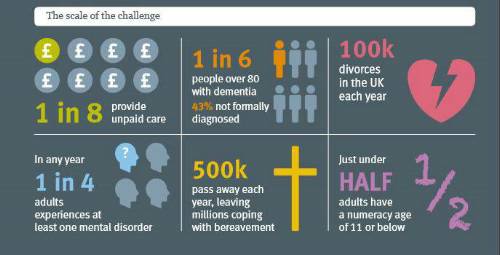By Jonathan Warren, consultant at Altus
While this is a consultation paper, it was not being specific enough to help the industry with the practical challenges in implementing their approach. For instance, the good and indifferent practice examples; the spotlight on product/service design; customer service; communication and monitoring do offer some level of direction but fall short of the breadth of detail needed to scope the change required. A primary area of concern is the complexity, the range of conditions and customer contexts that firms will have to identify, support and manage. For example, how do firms overcome primarily digital customer relationships? Will the ombudsman take a balance of probability view if a complaint centres on a customer taking action and retrospectively claiming they did so when vulnerable? Not to mention the change and operational costs firms will have to absorb at a time when the regulator is pushing competition and value for money. In the absence of greater clarity, firms should focus on three overarching themes – culture, people, and systems.
Culture
Firms need to embed a vulnerable customer-centric culture across the whole organisation; one which requires a commitment from the top down. A culture that permeates through every activity, logically evolving and adapting to ensure vulnerable customer needs and considerations are addressed. It also needs to extend across the value chain, to ensure intermediaries and delivery partners are aligned with your vulnerable customer policy and standards, with regular due diligence undertaken.
People
The paper rightly emphasis on the skills, capabilities and competencies of front-line staff and stresses the need for them to be trained to identify and support vulnerable customers. This is logical, given it is front-line staff who interact with customers. However, notwithstanding the concept of champions, or localised specialist teams, this will force a fundamental re-think of most front-line staff roles in financial services. Front-line staff will need to be experienced, highly skilled, emotionally intelligent and capable of exercising sound judgement and acting autonomously outside of normal procedural boundaries.
Systems
Systems need to be set up with the capability to manage vulnerability. Systems need to record and surface data in a manner that alerts colleagues and supports them in dealing with vulnerable customers and prevents any undue distress of repeat disclosure. The ability to achieve that aim may depend on the size of the firm, data portability, and how monolithic architecture is across business units and products.
While the FCA’s guidance consultation on vulnerable customers is welcome, the industry will need to see more clarity and support from the regulator.
In the infographic below (Full Infographic download), we explore the regulatory history, the underlying life events and contexts that can drive vulnerability, and challenge some of the preconceived ideas that vulnerability begins and ends with the elderly widow suffering from a disability that impacts cognition.

|


